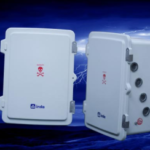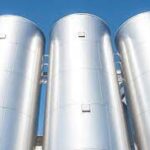Don’t have WhatsApp Yet?
Download NowWe Always Ready To help you. Tell Us your Concirn by filling below Form

If you’re looking for a great material for moulding, you might want to consider Sheet Molding Compound (SMC). It’s made from a mix of unsaturated polyester resin and glass fibers or carbon that are over an inch long. The mixture includes either epoxy, vinyl ester, or polyester. The result is a super-strong and durable material that’s also pretty cost-effective.
A material called Sheet Molding Compound (SMC) is commonly used for molding. This material is made by combining unsaturated polyester resin with either glass fibers or carbon fibers that are over an inch long. The resin mixture used can be made from any of three types: epoxy, vinyl ester, or polyester. The resulting product is both strong and durable, as well as cost-effective.
Sheet Molding Compound (SMC) has been used in industrial applications for many years due to its excellent electrical properties. It can resist the flow of electrical current, making it useful for cable distribution boxes and electrical insulation. The use of SMC in the automobile industry began in the 1970s.
Many design engineers choose to use thermoset composites instead of metals for high-performance applications due to the limitations and high costs of metals. Thermoset composites offer more strength, dimensional stability, and corrosion resistance compared to metals while providing greater design flexibility and manufacturing efficiency.
Some Products of Sheet moulding Compound(SMC) from the quality manufacturer Company Indo SMC private limited with wide range of SMC Enclosures in varies sizes also knowns as meter box, junction Box, distribution box and many more.
The INDO SMC private limited have reputed name in the field of SMC Product manufacturer in India and exporter in several countries like SAARC countries and UAE (United Arab Emirates).
The list of the SMC Products manufactured by INDO SMC private limited are:-
Thermoset polymers possess exceptional thermal resistance, with specific resin systems enabling temperatures up to 300°C. These materials are technically superior to engineering thermoplastics and a more cost-effective alternative to high-performance thermoplastics. SMC materials, which combine cross-linked polymers and high inorganic filler content, maintain excellent molding characteristics and are the preferred choice for applications requiring elevated service temperatures or temporary exposure to high temperatures. For demanding engineering applications, it is crucial that the Coefficient of Thermal Expansion closely matches metals, ensuring excellent performance across all temperatures.
I agree that high fire retardancy is crucial for many applications. Various additives can be added to different polymers to achieve this. Interestingly, SMC materials do not contain any halogens or harmful flame retardants, yet they can still maintain excellent properties even at low wall thicknesses.
When it comes to replacing high-performance metal parts with greater precision, SMCs are the ideal solution. They can achieve the tightest tolerances without any additional post-machining, which leads to cost savings and increased profitability. One of the key benefits of SMCs over non-thermoset polymers is their ability to compensate for shrinkage, making even the most challenging projects possible. To achieve the highest level of precision, materials with a negative shrinkage (expansion) are used.
As the world faces depleting fossil fuels and increasing environmental concerns, high-performance composites can offer a valuable solution. By using components that are lighter and require less energy, these composites can make a significant impact. The mechanical properties of SMC (Sheet Molding Compound) make it possible to substitute a variety of metal parts with ease and efficiency.
Since the beginning of the plastics era, thermoset materials have been known for their outstanding electrical properties. Among these materials, SMC stands out with even higher performances in areas such as electrical strength, water absorption, and surface resistivity. While thermosets excel in insulation, there are also options available for materials with reduced surface resistivity and increased conductivity. With its ability to meet both isolating and conductive electrical requirements, SMC covers the full range of electrical needs.
This SMC part’s unique technology compensates for material shrinkage, resulting in a mirror-like finish ideal for online and offline painting and metalizing.
In the automotive industry, the utilization of low-emission materials in the manufacturing of interior parts is deemed critical. This practice serves to mitigate any potential risks associated with the emission of hazardous or unpleasant odors. Furthermore, the headlamp reflectors utilized in the lighting system must be free of emissions to prevent fogging, which could otherwise compromise the effectiveness of the lamp.



